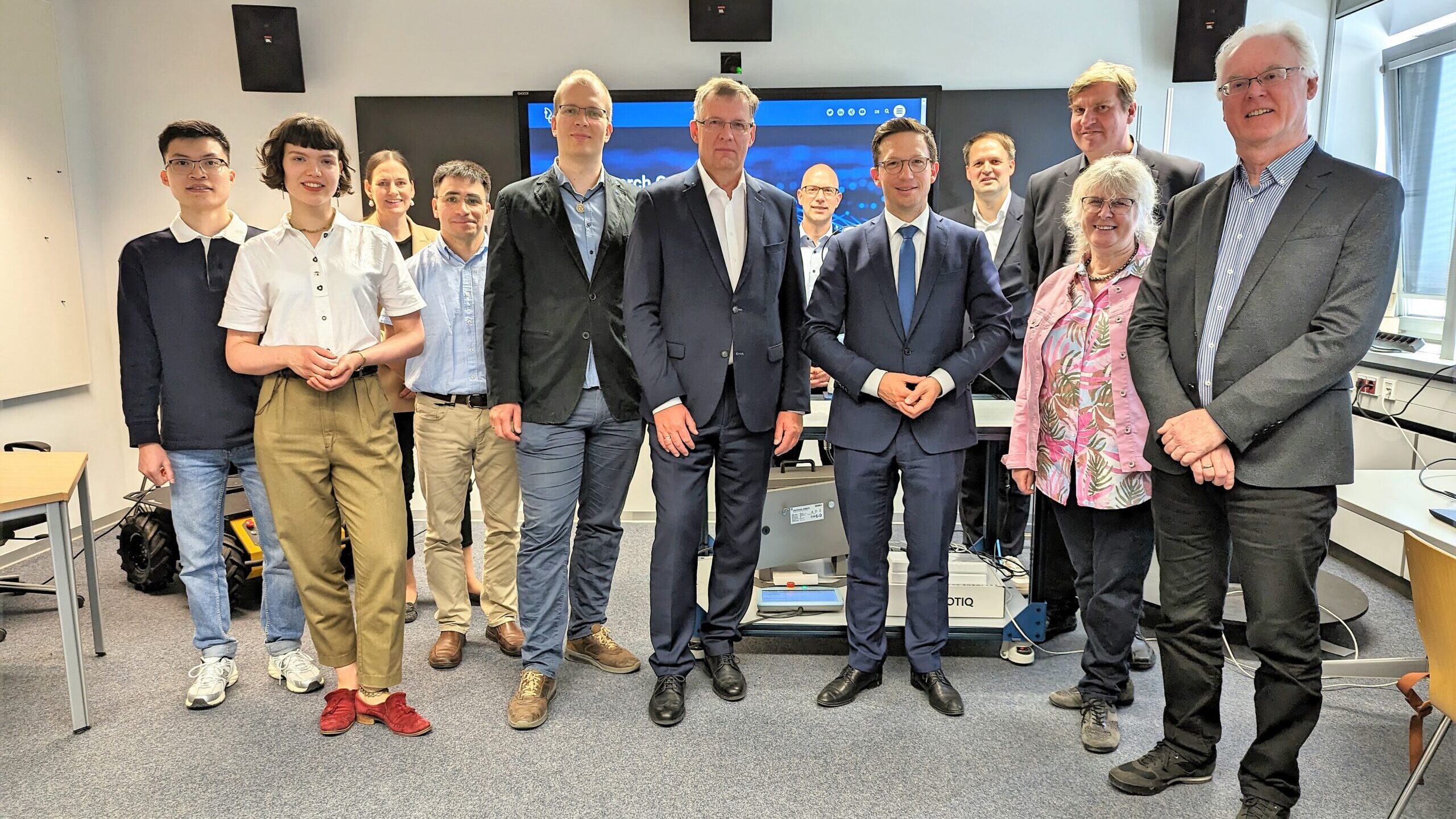On 6 June, Falko Mohrs was informed about current research topics.
Excellent basic research on human-centred AI, as well as application-oriented research for personalised medicine and resilient supply chains: Lower Saxony’s Minister of Science Falko Mohrs received insight into current research and transfer projects at the L3S Research Center during his inaugural visit on 6 June 2023.
Director Prof. Dr. Wolfgang Nejdl presented the L3S as a think-tank for responsible AI and as an innovation partner for Lower Saxony. With an annual budget of 15.5 million euros, including 2 million euros basic funding, the L3S is the largest AI research centre in Lower Saxony, according to Nejdl. The research strength, for instance, is reflected in the ERC grants and the European Research Training Groups. As an example, Nejdl presented the research training group NoBIAS, which he coordinates. Nine universities and twelve companies from Europe are involved. The researchers develop new methods for AI-supported, unprejudiced decision-making.
In addition to Nejdl, the L3S members Prof. Dr. Sören Auer and Prof. Dr. Marius Lindauer presented projects from basic and applied research, including the Open Research Knowledge Graph (ORKG) developed by Auer. The ORKG clearly summarises the flood of research results on a particular topic and, thus, saves scientists a lot of time. Lindauer does research on how to integrate human expertise into automated machine learning, to strengthen trust in AI and to shorten the development cycles of AI applications. The scientists agreed that application and transfer ideas are already evident in basic research.
Auer also presented the COYPU project, which is topical against the backdrop of the pandemic and the Ukraine war: A data platform is being developed through which economic, sector-specific, or internal company data can be networked, analysed and evaluated to enable more efficient crisis management.
Together with the MHH and excellent guest scientists from all over the world, the L3S also conducts cutting-edge research in the International Future Laboratory for Artificial Intelligence and Personalised Medicine, one of only three AI future laboratories funded by the BMBF nationwide since 2020. The L3S owes this success also to the fact that Hanover has a strong computer science department in addition to a strong medical school, Nejdl said.
Another strength of the L3S is its coordination and involvement in projects that actively promote knowledge transfer. As examples, Nejdl mentioned the European Digital Innovation Hub for AI and Cybersecurity (DAISEC), the AI Service Centre for Sensitive and Critical Infrastructures (KISSKI) and PROKI HANNOVER as part of the Demonstration and Transfer Network for the Use of AI in Production (ProKI).
The first part of the visit ended with a look into the future: With CAIMed, the Lower Saxony Centre for Artificial Intelligence and Causal Methods in Medicine, the topic of AI in medicine will continue to play a major role at L3S. In CAIMed, cooperation with the University of Göttingen and other partners will be expanded. Another new focus will be interdisciplinary research and development of quantum software, for which a new Leibniz Centre for Quantum Computing, Optimisation and Machine Learning is planned.
L3S board member Prof. Dr. Jörn Ostermann guided the minister through the second part of the programme. The start-ups Dresslife and cruisewatch presented their AI solutions for online fashion retail and call centre travel advice developed in cooperation with the L3S. The visit concluded in the Robotics Lab, where the talking robot Pepper greeted the minister in person. L3S employees demonstrated how to control robots remotely with hand movements. Applications exist, for example, in areas where humans cannot be used for safety reasons.
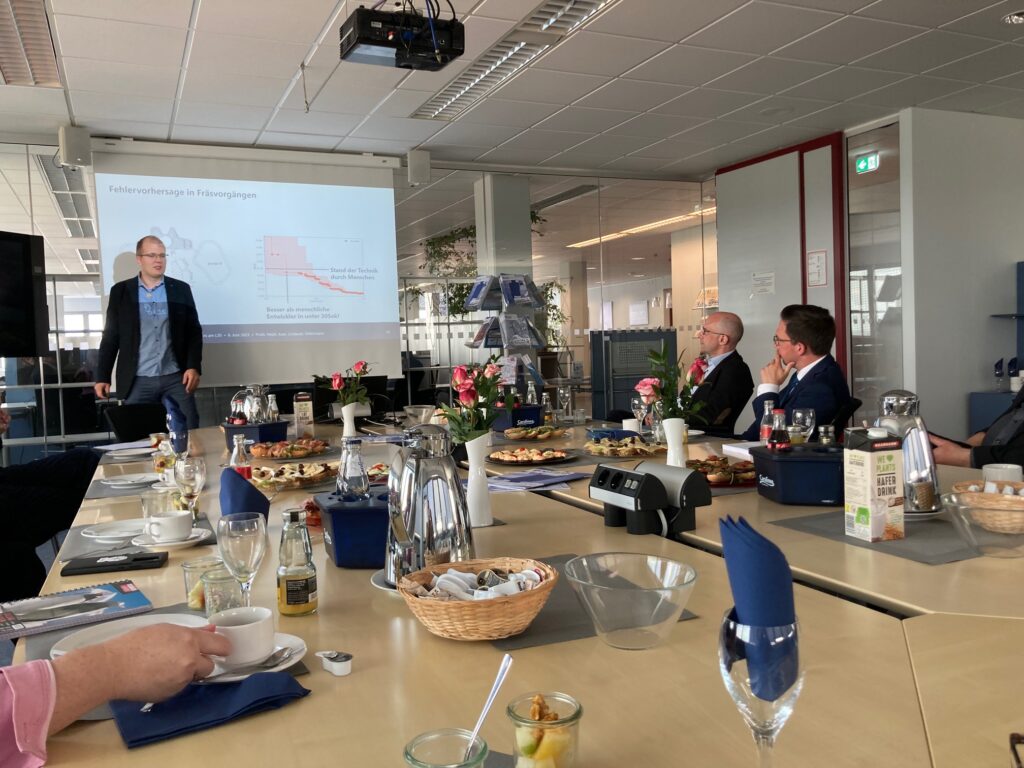
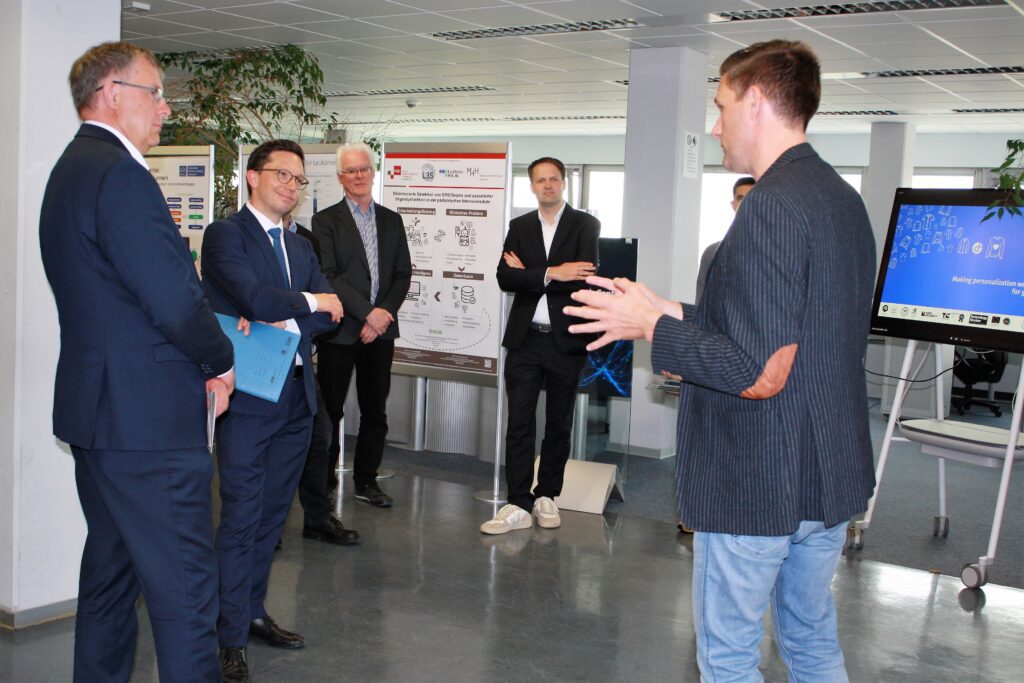
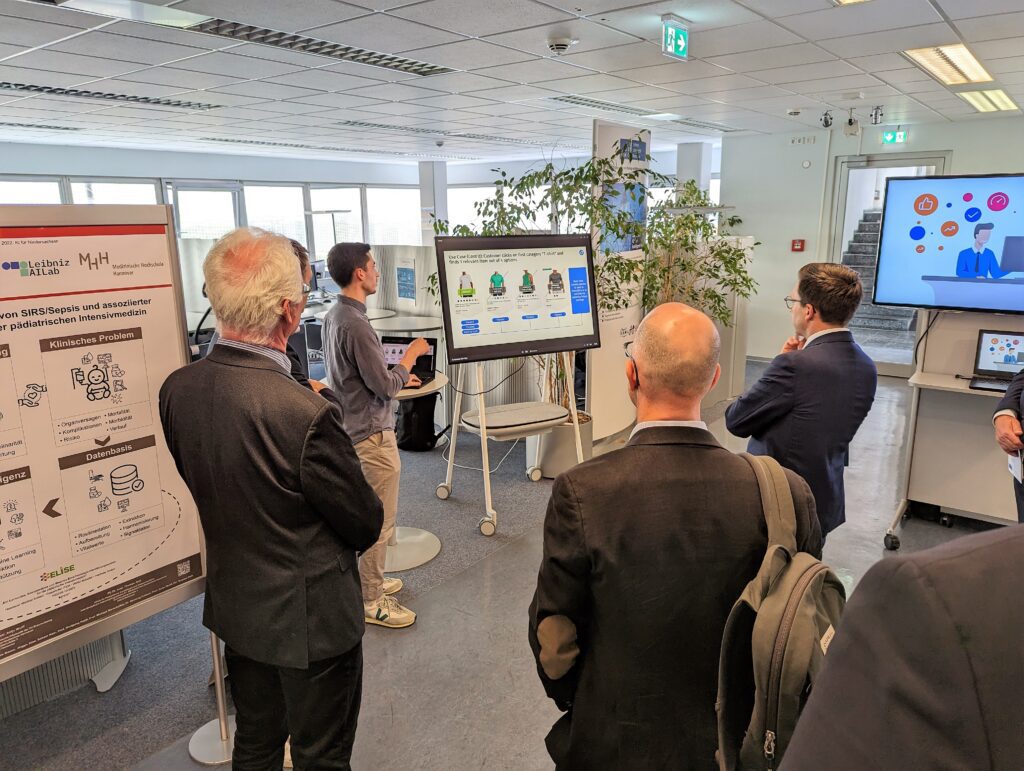
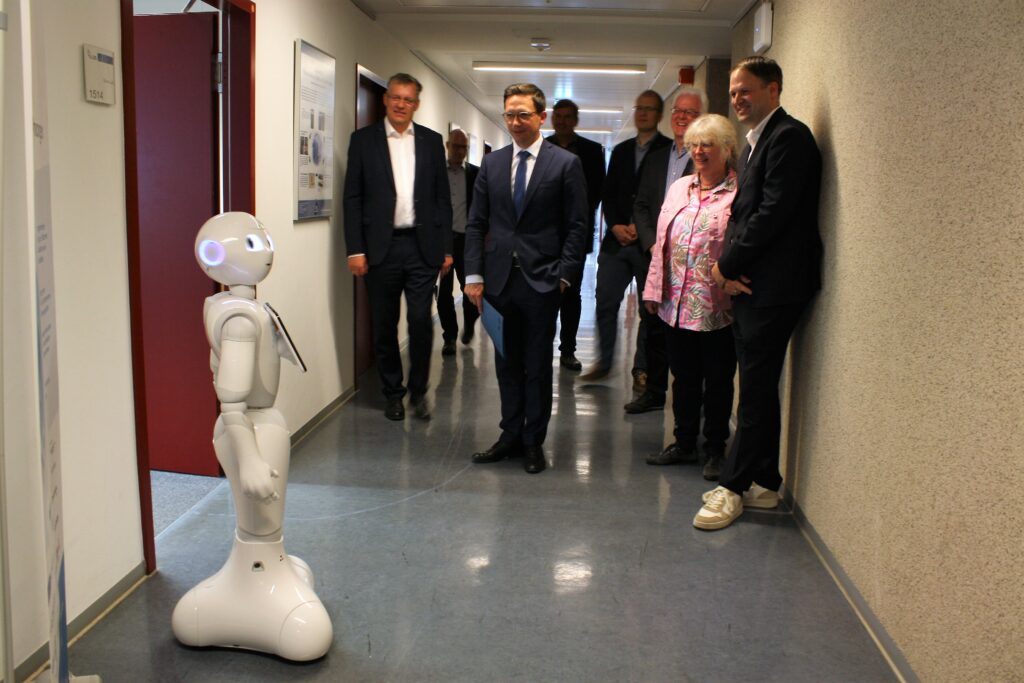
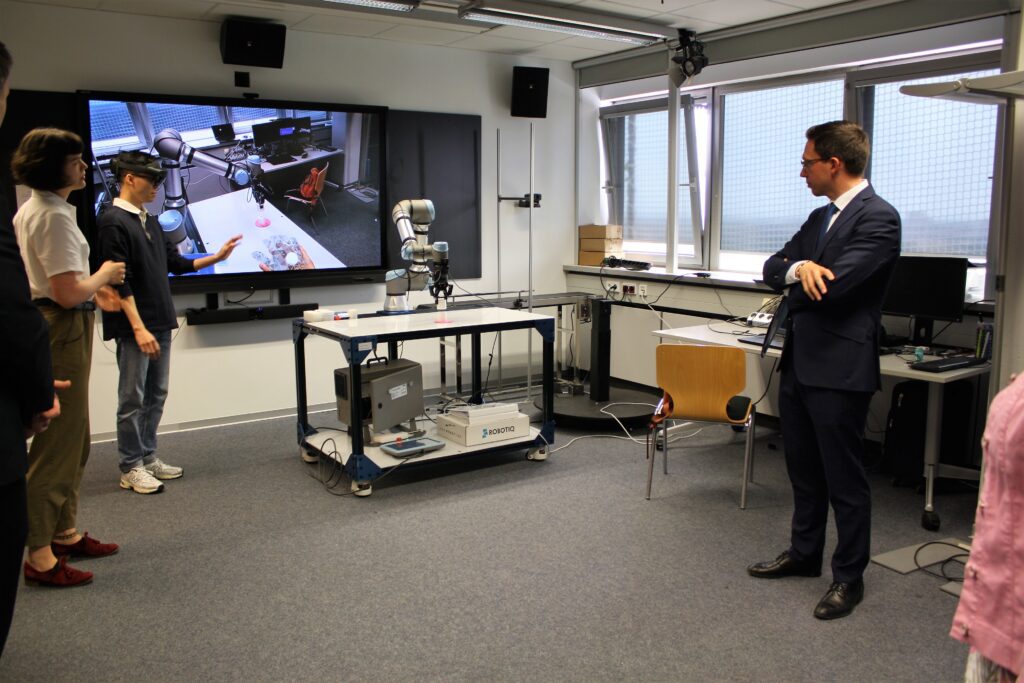
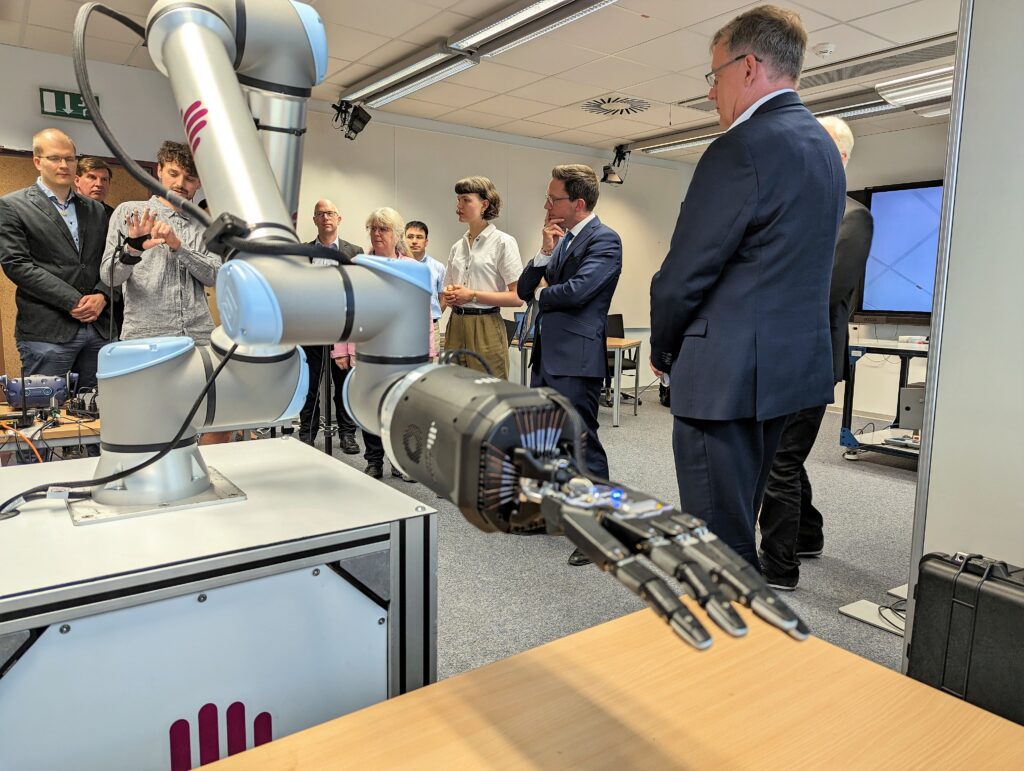
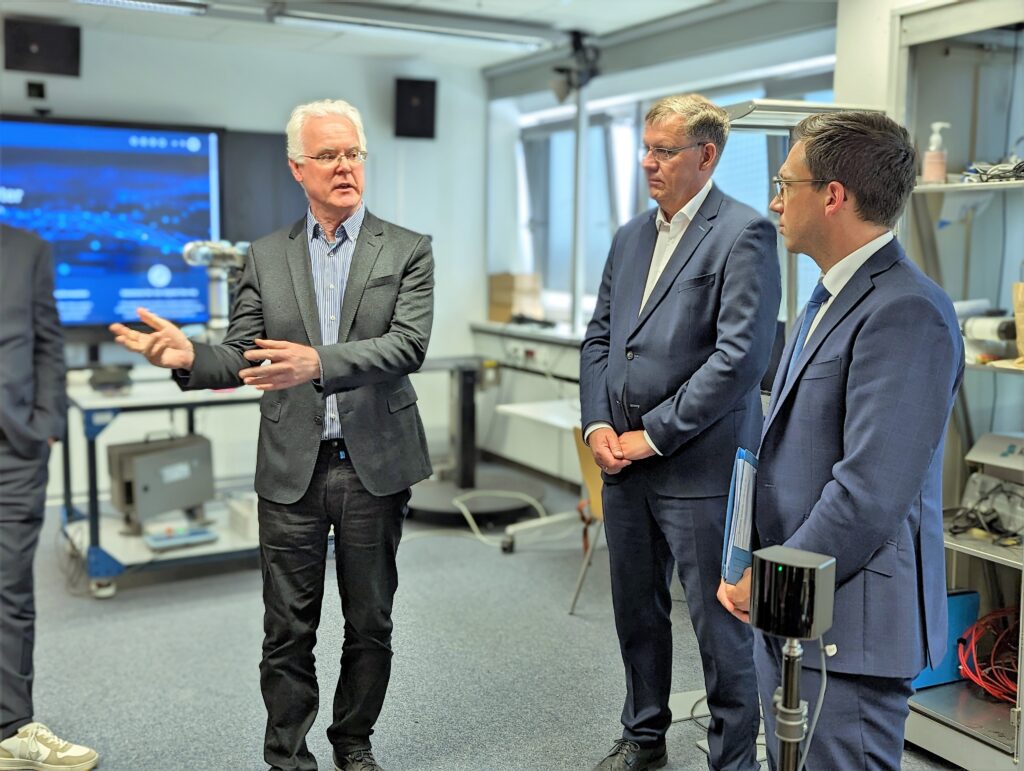

 Search
Search